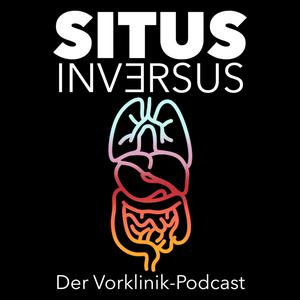Mit diesem Podcast habt ihr die Möglichkeit, euch Inhalte der Vorklinik noch einmal neu erklären zu lassen. Genauso eignet er sich dazu, den Stoff vor einer Prüfung zu wiederholen oder vor dem Physikum aufzufrischen. Das alles kommt von Medizinstudierenden, die eben diese Prüfungen gerade erst hinter sich haben und selbst noch mitten im Studium stecken. Verständlich, erfrischend und auf Augenhöhe. Viel Spaß!
WebApp mit Episodenfinder + Merkhilfendatenbank: dervorklinikpodcast.de
Für Lob, Kritik und mehr:
[email protected]
Instagram: @der_vorklinikpodcast


